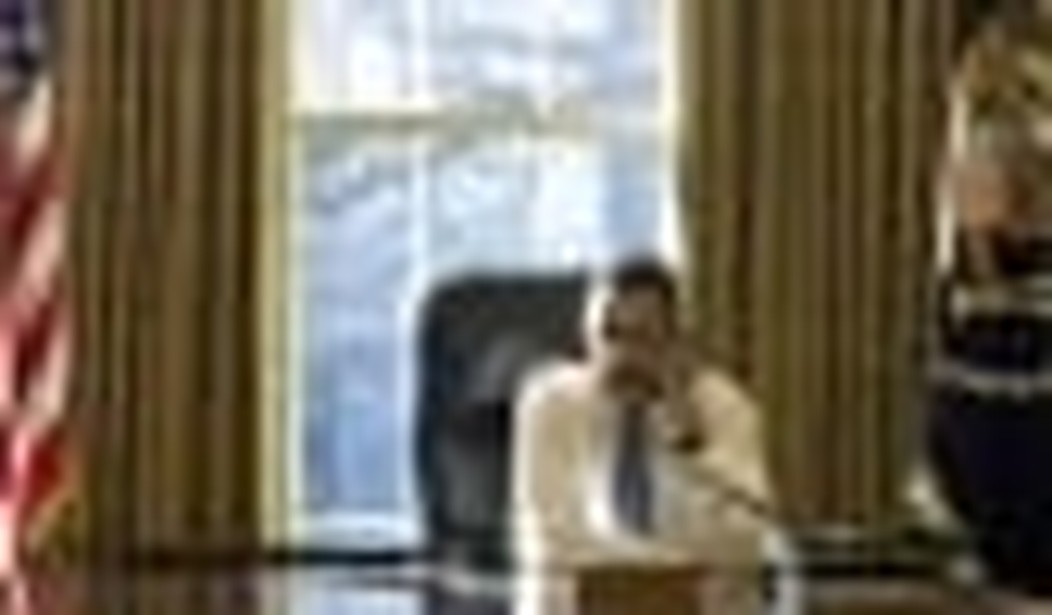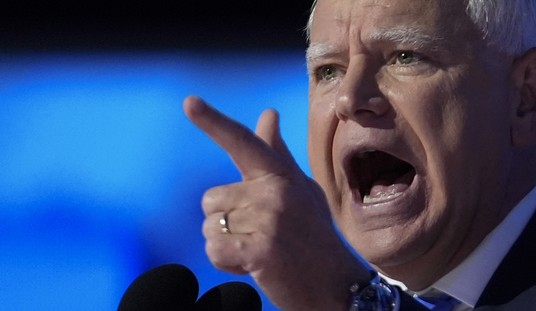In its first week the Obama administration revealed itself to be infatuated with dramatic gestures and sweeping pronouncements: Guantanamo is going to be closed, enhanced interrogation ended, Middle East peace re-established, Iraq to be “left” to the Iraqis, and bipartisanship restored. But the reality is quite different, leaving open the question as to whether President Obama really believes his own rhetoric or is slyly wielding symbolism to conceal the very familiar contours of his not-so-groundbreaking policies.
He announces Guantanamo will close, but not really anytime soon. They haven’t figured out what to do with the detainees and how we are going to conduct the legal proceedings. So due process grinds to a halt and the detainees sit in Guantanamo. The Left swoons with the grand sentiment, but nothing has changed. It is hard to see what will be done with the detainees. Put them in the U.S.? Not if the home state politicians have anything to say. Repatriate them to their own countries where they’d be subject to torture? Not very humane.
One of the savvier Democrats, Rep. Jane Harman declared that it is “shocking and disappointing” that a released Guantanamo prisoner is now heading up al-Qaeda in Yemen. She does know that over sixty of the Guantanamo releasees have appeared back on the battlefield, right? Gosh, this Guantanamo stuff is harder than it looks.
Underneath all the hoopla it is not clear that much if anything will change. Josh Gerstein warns: “There may be less than meets the eye to the executive orders President Obama issued yesterday to close the prison at Guantanamo Bay and prohibit the torture of prisoners in American custody. Those pronouncements may sound dramatic and unequivocal, but experts predict that American policy towards detainees could remain for months or even years pretty close to what it was as President Bush left office.”
As Gerstein points out, the same day that Guantanamo was ordered to be “closed” President Obama ordered the end to enhanced interrogation techniques and directed the CIA to abide by the U.S. Army Field Manual, which prohibits even tactics such as sleep deprivation. But once again, in the specifics we find a slightly different reality. The president’s advisers will report back to tell him if perhaps some exceptions might be needed — when it really is important to get critical information from a terrorist. The Wall Street Journal dubbed this the “Jack Bauer exception”:
The unfine print of Mr. Obama’s order is that he’s allowed room for what might be called a Jack Bauer exception. It creates a committee to study whether the Field Manual techniques are too limiting “when employed by departments or agencies outside the military.” The Attorney General, Defense Secretary Robert Gates and Director of National Intelligence-designate Dennis Blair will report back and offer “additional or different guidance for other departments or agencies.”
In other words, Mr. Obama’s Inaugural line that “we reject as false the choice between our safety and our ideals” was itself misrepresenting the choices his predecessor was forced to make. At least President Bush was candid about the practical realities of preventing mass casualties in the U.S.
Meanwhile, President Obama also appointed George Mitchell as Middle East envoy. Ignoring the efforts of the Bush and Clinton administrations to find a legitimate “partner” for Israel to negotiate with, Obama declared a whole new era in Middle East peace efforts — which bore an uncanny resemblance to just about everything his predecessors had done or said on the subject for the last decade.
Then there is Iraq. Ending the war immediately — defined as within sixteen months — was the cornerstone of the Obama campaign. But when he met this week with his national security advisers President Obama did not mention the timetable. The Washington Post editors noted:
Accounts of the meeting suggested that Mr. Obama spent much of the time listening to reports from those who know Iraq best — Gens. David H. Petraeus and Ray Odierno and Ambassador Ryan C. Crocker. In addition, the president’s statement did not cite the 16-month withdrawal timetable that became one of the signal slogans of his campaign — though his spokesman mentioned it. We hope that’s evidence that Mr. Obama will not repeat one of President Bush’s greatest mistakes — allowing ideological and political considerations to trump good military judgment.
Perhaps there is something to all of John McCain’s warnings about the danger and impracticability of a fixed timetable for withdrawal. And once again it is harder than it once looked to depart from the policies of the reviled Bush administration.
And then on the domestic front, President Obama has declared a new era of bipartisan cooperation — but, once again, not much has changed in practice. The House Democrats have cobbled together a mish-mash of spending items under the “stimulus” label (although most of the spending will not actually work its way into the economy in time to affect the recession). “Earmarks” have been banished, but only by re-definition as a host of pet projects and ludicrous pork now are unabashedly lodged in the legislation in plain sight. And to top it off, Republicans were entirely excluded from the bill-writing process.
Nancy Pelosi boasted, “Yes, we wrote the bill. Yes, we won the election.” President Obama, who had intoned that we must but away “childish things” and the petty grievances of the past, seems not much concerned about reining in his Democratic allies, even for the sake of improving the bill to meet his own policy requirements. Indeed, he echoed Pelosi with an “I won” line of his own during a meeting with Republicans on Friday. Although he promises another get together with Republicans next week, the Pelosi bill continues barreling down the legislative track. In short, the “bipartisan stimulus bill” is neither bipartisan nor a stimulus for the ailing economy.
There are some common themes here: a straining to declare the dawning of a new age, the conceit that no one had ever thought to do these things (and that everyone missed how easy this all is), an effort to conceal the real decision-making (which now is driven deep into the bureaucracy), and the hint that there really isn’t much new here at all. This may be the inevitable result of a candidacy premised on the foggy notion of “change” without firm policy underpinnings.
Now this, of course, is just the opening round. Perhaps the gestures will be followed up by actual shifts in policy or dramatic departures from the legislative process as we have known it. Maybe Nancy Pelosi and Harry Reid will adopt the spirit of bipartisanship which Obama talked about. But we are learning that gestures mean a great deal to the new administration and, for now, take the place of real innovation. So far, we have an abundance of moral preening and only the illusion that all is being made anew.
Those who were hoping for more might begin to fret. Those who feared much more might breathe a sigh of relief. This much is clear: aside from operatic stagecraft not much is different after all.









Join the conversation as a VIP Member